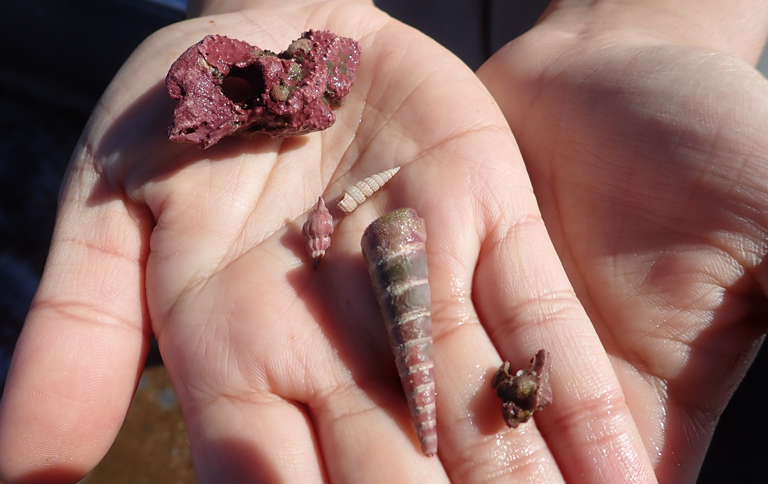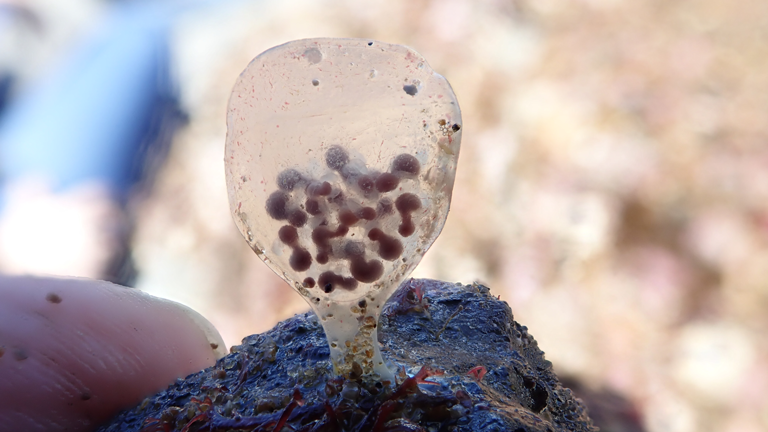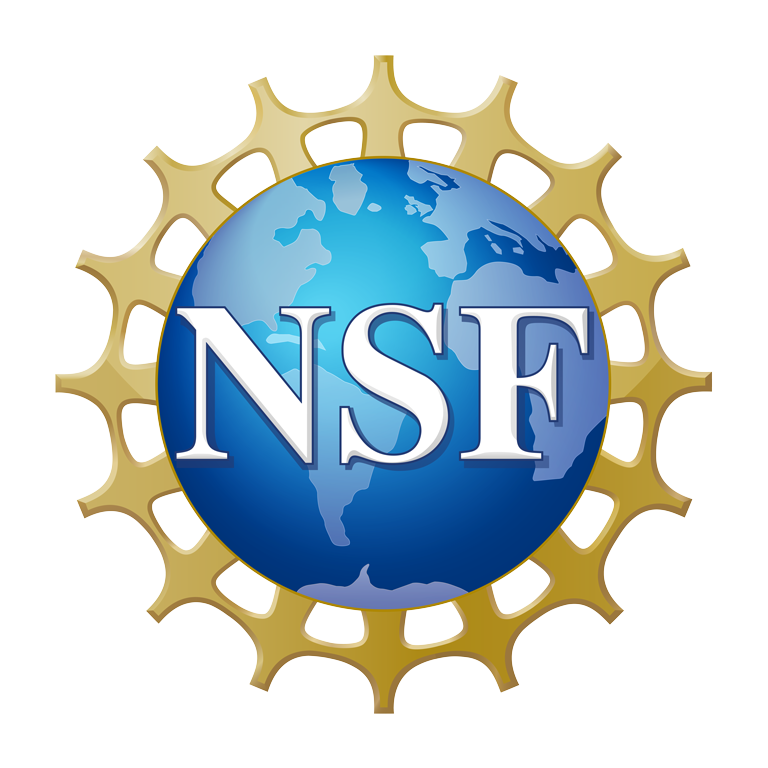PCC Summer Ocean Science Research Program
The PCC Summer Ocean Science Research Program is a new and exciting opportunity for students who are interested in transferring to a university or moving directly into a career in the STEM (Science, Technology, Engineering, and Mathematics) fields. Students will gain real-life research experience, develop partnerships with PCC faculty, and learn skills that will be applicable in future STEM careers.
Participants will be part of a unique and distinguished U.S. National Science Foundation (NSF) undergraduate research experience that is only available at PCC. This program is made possible by the NSF: Innovation in Two-Year College Stem Education (ITYC) grant awarded to Dr. Nagy and Dr. Vendrasco of the PCC Geology Department.
Read more about our program activities here.
Program Overview
Students will participate in oceanographic data collection and analysis and receive training in essential skills for positions in scientific fields. Data collection will take place on board an oceanographic research vessel, the R/V Yellowfin operated through Cal State Long Beach. Students will gain experience using a variety of state-of-the-art oceanographic equipment on board the Yellowfin and at the SCMI (Southern California Marine Institute) dock in LA Harbor. Boat trips will feature different localities around LA Harbor and off the Palos Verdes coast, allowing students the opportunity to detect and analyze broad geographic patterns throughout the region.
Skills training and instruction will take place at PCC with faculty from the Geology, Biology and Chemistry Departments. This inter-disciplinary component is meant to provide students with a broad range of skills that are useful in college and university courses and that are in demand for ocean science and geology jobs.

Final Project
Students will be expected to complete a final project under the guidance of faculty mentors. Each student will select and refine a research question and hypothesis that they will then test using the results from their ocean sampling. Over the course of the program, students will operate oceanographic equipment and collect data during research vessel trips. They will analyze the data back at PCC with the assistance of PCC faculty mentors who have specialized in ocean science. This will culminate in a poster which will be presented at the Natural Sciences Summer Research Poster Symposium that takes place in early fall.
Program Eligibility
To be eligible to participate in the program, students must meet the following criteria:
- Be currently enrolled at Pasadena City College (PCC).
- By Fall 2025, have completed or be currently enrolled in at least one of the following Geology courses (or completed an equivalent course from another
college or university):
- Geology 1: Physical Geology
- Geology 3: Earth and Space Science
- Geology 12: Physical Oceanography
- Be a U.S. citizen.
Program Schedule
Students selected for the program will be required to attend and participate in all scheduled program components:
Spring 2026
- May 2 @ PCC 8 AM-noon - Overview and Orientation to Program
- May 16 @SCMI all day, including boat trip - Orientation at dock
Summer 2026
- July 6-9 (three days @ PCC 8 AM-noon and one day with an all day boat trip)
- July 13-16 (three days @ PCC 8 AM-noon and one day with an all day boat trip)
- July 20-23 (three days @ PCC 8 AM-noon and one day with an all day boat trip)
- July 27-30 (three days @ PCC 8 AM-noon and one day with an all day boat trip)
Fall 2026
- September (early-mid September, date TBD) - Poster Session
- Participants will receive a $2500 stipend upon successful completion of the program.

Application Deadlines
- Applications must be submitted by November 21
- Applications Reviewed: November 22 to December 1
- Applicant Interviews: December 1 to 12
- Acceptance letters sent out: by mid-January
The application period is closed for the 2026 program.
Contact Us
If you have any questions about the program or the application process, please email oceanscience@pasadena.edu.
Faculty
-
 Elizabeth Nagy
Elizabeth NagyElizabeth Nagy
Dr. Elizabeth Nagy is a Professor of Geology at PCC and the Principal Investigator of the PCC Summer Ocean Science Research Program. Her early research focused on field mapping, structural geology, paleomagnetism, geochronology, and isotope geochemistry in California, the Canary Islands, France, Mexico, Morrocco, and Vietnam to understand the intricacies of plate tectonic boundaries. In the past 20 years she has worked extensively in geoscience education, transforming her classrooms into supportive, active learning environments grounded in education research and lots of trial and error. She is excited to involve PCC students in first-hand oceanographic research in their own backyard.
-
 Michael Vendrasco
Michael VendrascoMichael Vendrasco
Dr. Michael Vendrasco is an Associate Professor of Geology. His training is in marine invertebrate evolution and paleontology. He serves on the Board of Directors of SCMI, on the Steering Committee for the Blue Economy and Climate Action Pathway Los Angeles Regional Project. He has taught at UCLA and Cal State Fullerton, held post-doctoral appointments at UCLA, UCSB, and the University of Granada Spain, and he was a Senior Environmental Specialist in the Ocean Monitoring Program at the Orange County Sanitation District.
-
 Kelley Voss
Kelley VossKelley Voss
Dr. Kelley Voss is the Marine Biology course lead at PCC. Her research expertise includes octopus morphology (relationship between body shape and function) and behavior. She has researched octopuses locally on Catalina Island, in aquariums all over the West Coast, and even in Alaska! She has logged 100 scientific dives (mostly) looking for octopuses, wrangled countless moray eels, touched a dolphin’s belly button, and sat many times in a kayak in a marsh at 1 AM— all for science! Her favorite part of teaching Marine Biology is encouraging students to find and follow their passions like she did as a community college student.
-
 KeChaunte Johnson
KeChaunte JohnsonKeChaunte Johnson
KeChaunte Johnson is a Professor in Biology at PCC. Her early research focused on paternal testing of Pycnogonida from Antarctica to understand relatedness among Pycnogonida progeny. Later she went on to study copepods in the San Francisco Estuary (SFE), hoping to uncover the number of Acartia species residing in the SFE using nuclear and mitochondrial DNA markers. Currently, she enjoys teaching Physiology, Genetics and general Biology to PCC students. Her goal is to make Biology approachable, memorable, and above all else, enjoyable for a diverse group of students.
-
 Noel Rico-Corrales
Noel Rico-CorralesNoel Rico-Corrales
Dr. Noel Rico-Corrales is a part-time Chemistry Instructor at PCC. His experience includes studying nucleic acid structure and the dynamics of metal-mediated base pairs, conducting molecular diagnostics and high-complexity laboratory testing for COVID-19, and developing, validating, and applying immunoassays for chronic illnesses. He currently teaches Introductory, General, and Organic Chemistry and is passionate about inspiring student interest in STEM as a mentor in the Summer Ocean Science Research Program.

This program is funded by the National Science Foundation under Grant No. 2515217. Any opinions, findings, and conclusions or recommendations expressed in this material are those of the author(s) and do not necessarily reflect the views of the National Science Foundation. This grant is a multi-year initiative (2026-2028) with yearly program recruitment cycles.
